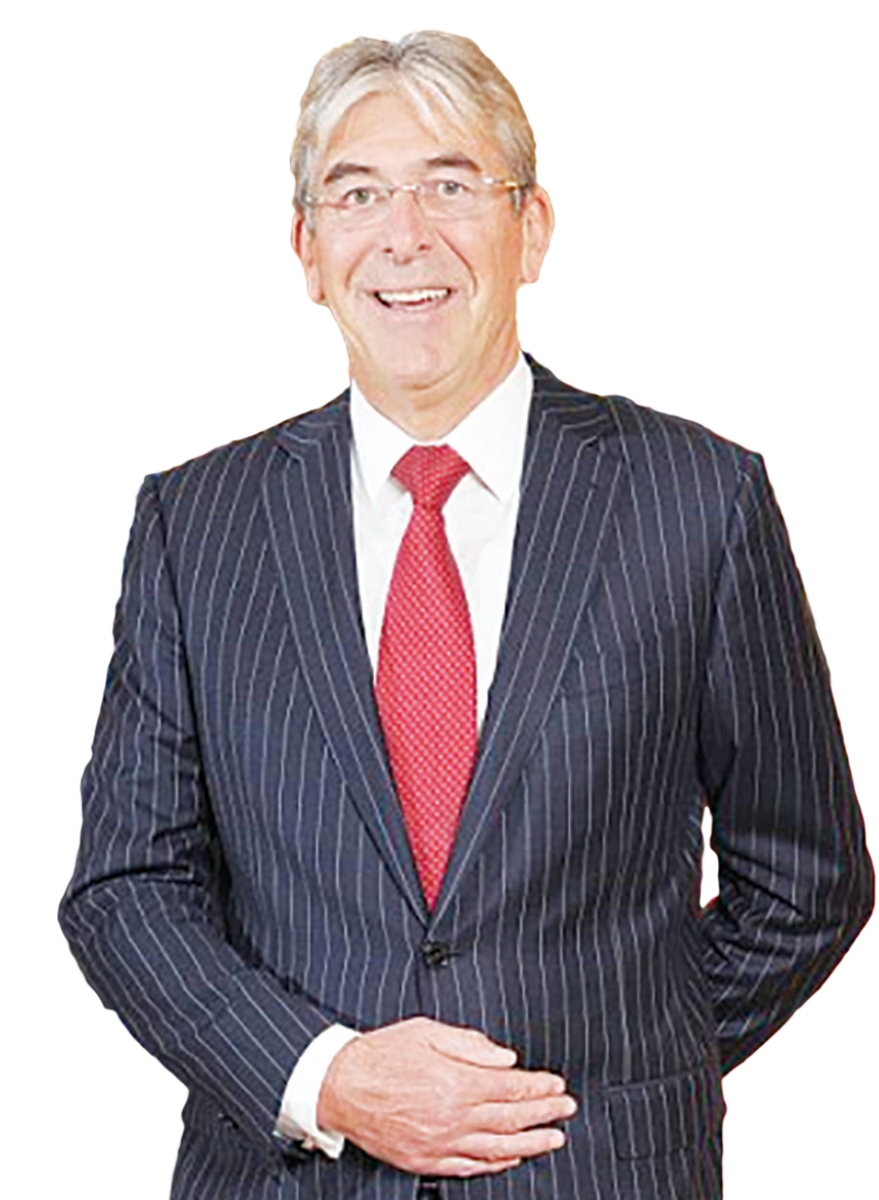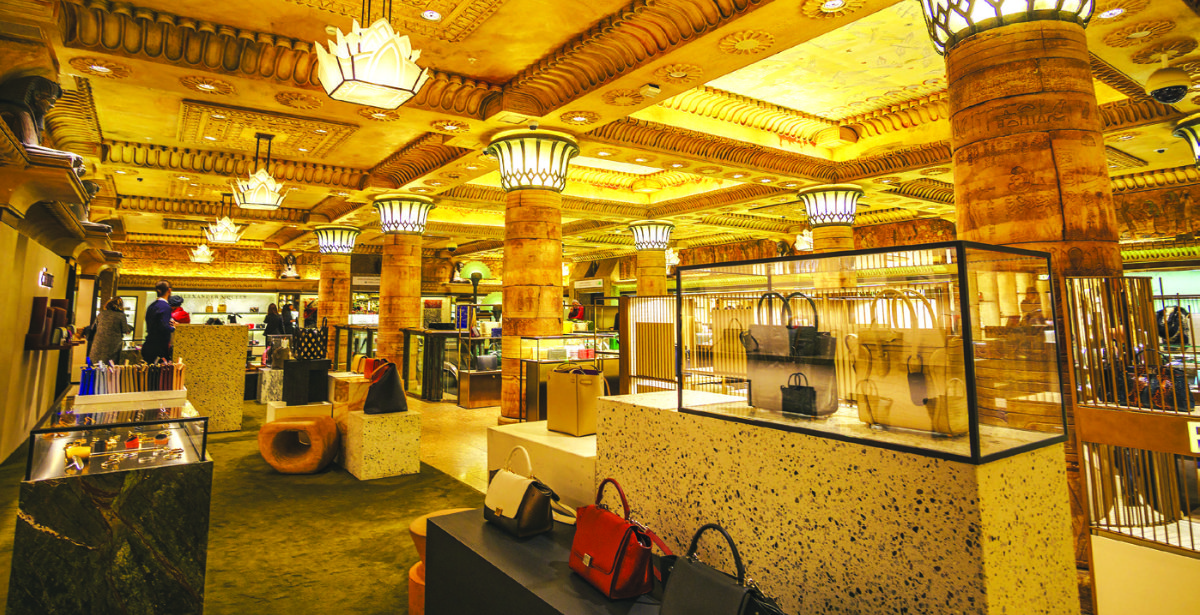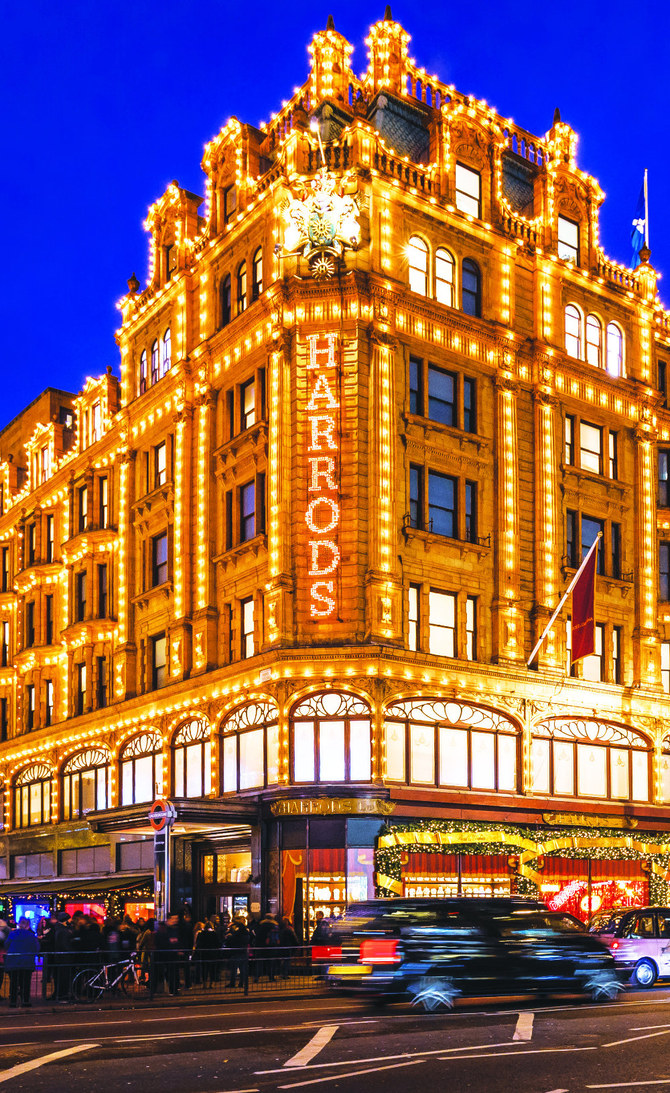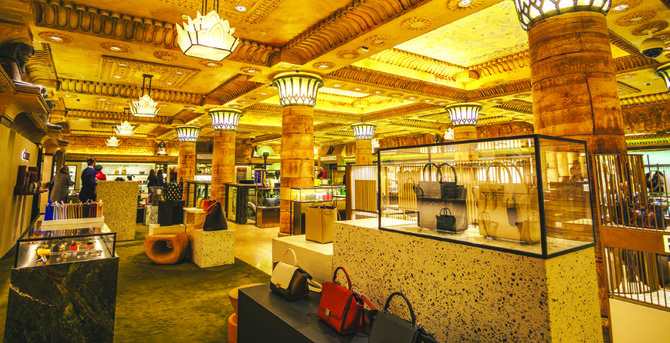RIYADH: When it comes to retail luxury, very few people in the world can match the understanding that Michael Ward, the managing director of Harrods, has of this exclusive market segment.
As the head of the iconic British luxury department store, which attracts 15 million shoppers each year, he undoubtedly occupies one of the most influential and exciting roles in luxury retail.
Since joining the business, Ward has embarked on a program of significant development, enabling Harrods to become the extremely successful retail model it is today.
HIGHLIGHT
he integration of digital experiences with physical stores in Saudi malls was a key theme at the Retail Leaders Circle MENA Summit and with a number of next-generation mall developments currently underway in the Kingdom, international retail will no doubt in the future be learning from how these have incorporated digital technologies and immersive experiences.
He was recently in Saudi Arabia and shared his wealth of knowledge at the 9th edition of Retail Leaders Circle Middle East and North Africa Summit held in Riyadh earlier this month.
The two-day annual event brought together all industry players in the retail sector from international brands to local franchise partners under one roof. In an exclusive interview with Arab News, Ward said the retail sector in Saudi Arabia was fast evolving.
“The integration of digital experiences with physical stores in Saudi malls was a key theme at the Retail Leaders Circle MENA Summit and with a number of next-generation mall developments currently underway in the Kingdom, international retail will no doubt in the future be learning from how these have incorporated digital technologies and immersive experiences,” he said.

Michael Ward, the managing director of Harrods. (Supplied)
Asked how existing malls in Saudi Arabia can keep pace with the hyper-competitive landscape, Ward replied: “The future of brick-and-mortar retail is experiential – whether that is providing dining or wellness services or the more creative and immersive experiences, all retailers need to be challenging themselves on how they delight and reward the customer in order to remain competitive.
“Innovative collaborations should be considered as they can play an important role in creating first-class experiential retail.”
Personalization is key
Ward went on to say that luxury retailers in the Kingdom who are keen to personalize shopping experiences for individual customers can take a lesson or two from Harrods, which is renowned for the service it offers to its customers, whether that is provided by a member of its team on the shop floor or through its personal and private shopping services.
“What we are now challenging ourselves on is how do we provide that digitally, whether that is harrods.com or virtual personal shopping services,” he explained. “Our objective is that however they shop, customers always experience the same exemplary and personalized service that they expect of Harrods. This ability to personalize the shopping experience beyond face-to-face interactions is a key challenge for the luxury industry today.”
Reflecting on how the luxury retail sector in the Kingdom can improve the premium shopping experience, Ward said truly understanding customers is essential.
“At Harrods we have invested significantly in the last two years in our Single View of Customer,” he revealed.
“This allows us to understand a customer’s buying journey from thousands of available data points, allowing us to make strategic decisions and engage with our customers at the right moment, through the most relevant channels and with the most engaging and valuable content, expanding the customer journey and importantly improving the customer experience.”

At Harrods, rewards members gain exclusive access to an array of benefits and earn points as they spend. (Supplied)
With regard to building further value through experience and loyalty, Ward said that Harrods is privileged to have the loyalty of some customers who have shopped with them for their whole lifetime, and who may even be second or third generation patrons.
“Nurturing loyalty has always been at the heart of our customer acquisition and retention strategy,” he explained. “Today our Harrods Rewards scheme, which has been in place since 2008, plays a big role in winning and keeping customer loyalty.”
Ward added: “Rewards members gain exclusive access to an array of benefits and earn points as they spend. And three quarters of our trade in 2022 came from Harrods Rewards customers. What this provides is a vast quantity of customer insights allowing us to ultimately provide better experiences for our customers.”
Key luxury retail trends
Moving forward, what are the key global trends in retail that Saudi Arabia should be ready to embrace? “Looking at luxury retail specifically, we see two trends shaping the industry,” Ward responded. “Firstly, a demand for unique experiences that delight the customer and secondly, a demand for rarity and exclusivity.”
“At Harrods, we have fortunately been well positioned to capitalize on both these trends,” he continued. “Our ever more creative pop-ups and unique brand collaborations mean every visit to the store can still feel like a new experience and secondly, we are able to bring together the rarest items under one roof with sought-after products that are exclusive to Harrods.”
With regard to innovations that could help change the retail landscape in the Kingdom, Ward explained that what machine learning and artificial intelligence can do for retail is a key question being asked by the industry globally, and it will no doubt bring changes in every country.
“At Harrods, we are using machine learning currently as part of our SVC to help analyze immense quantities of data and there will undoubtedly be more and more use cases in the future,” he said.
Talking of shopping habits of Saudi customers at the Harrods store, Ward said most luxury fabrics are extremely popular with their customers from the Kingdom. “We see the rarity and exclusivity of products also act as an important factor in their shopping choices,” he added.
Harrods, which has a longstanding relationship with Middle East customers, continues to shape a vision of modern luxury for generations to come. By all accounts, there is much to learn from this iconic department store as Saudi Arabia sets new benchmarks in luxury retail in the region.





























